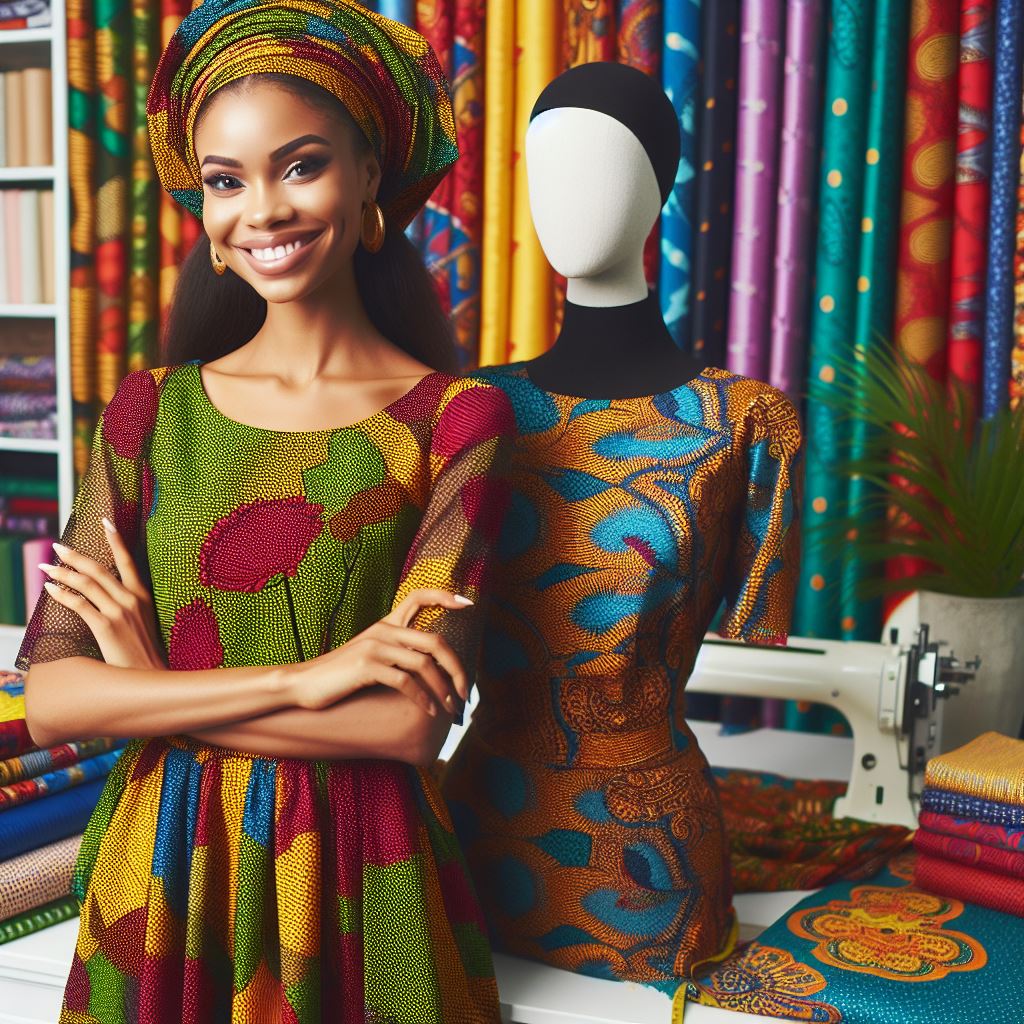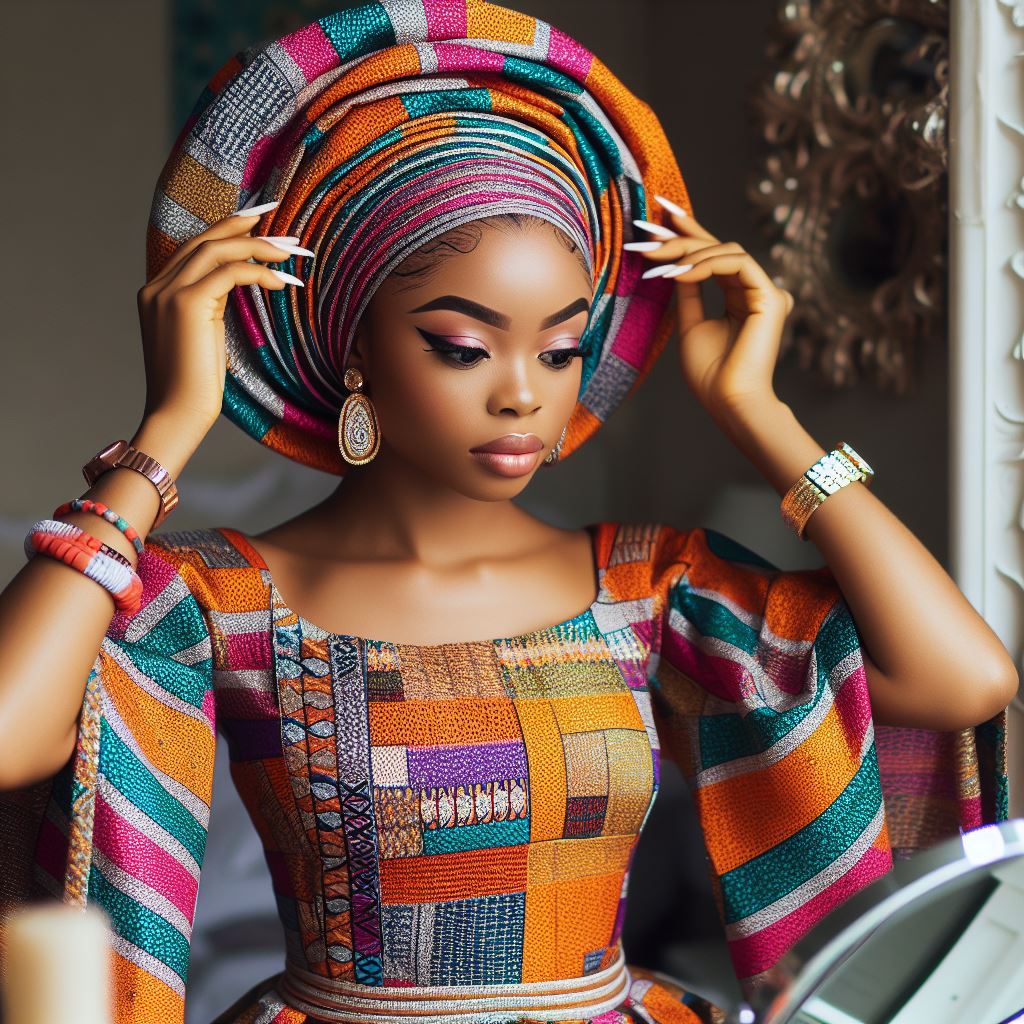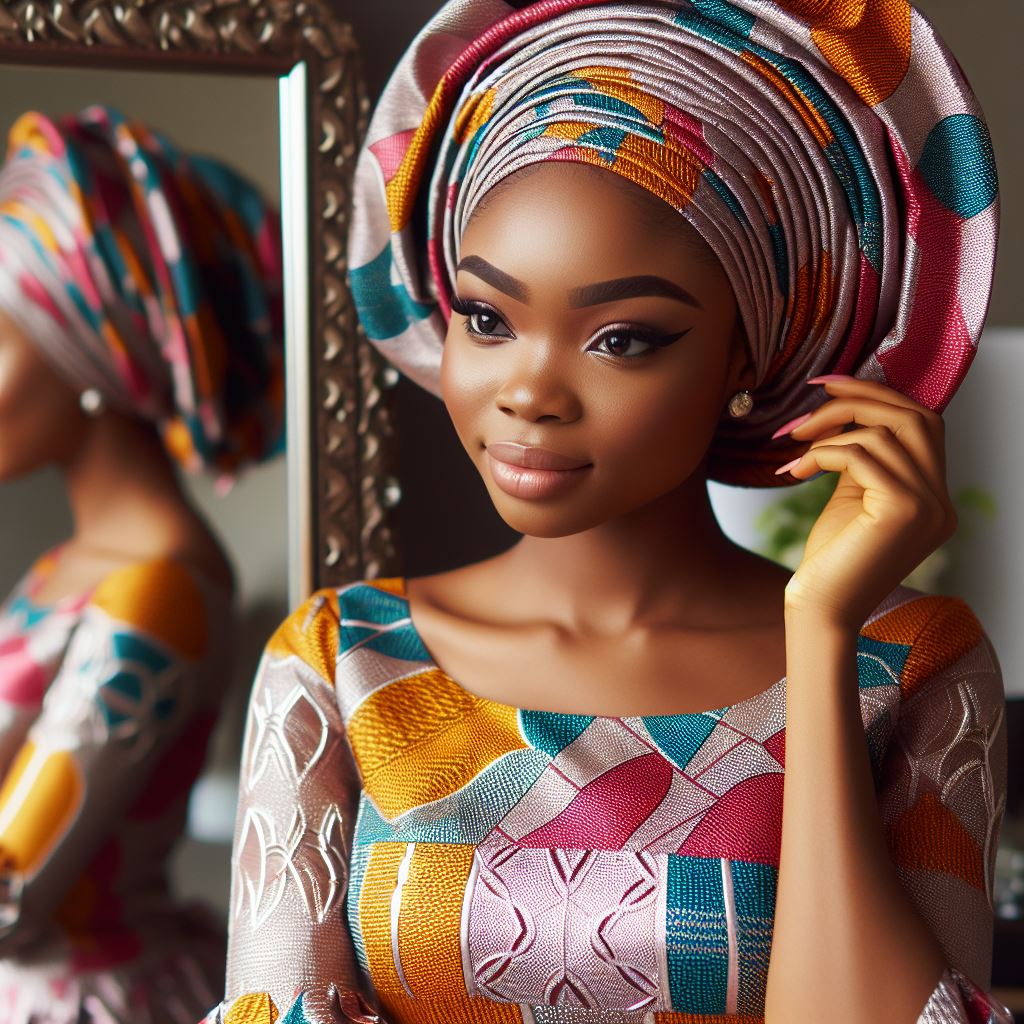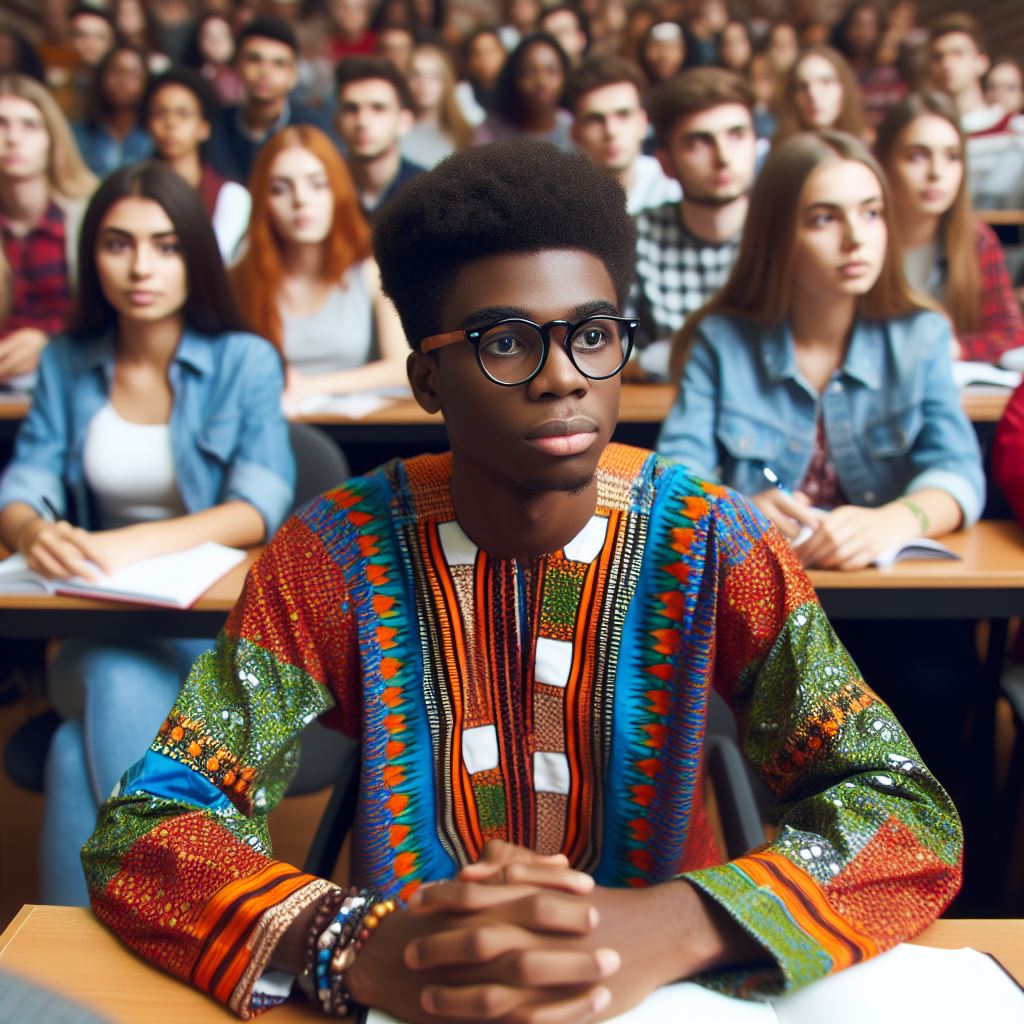Introduction
The Nigerian fashion industry is a vibrant and diverse sector that continues to gain recognition on the global stage. With a rich cultural heritage and a growing number of talented designers, Nigeria has become a hub of creativity and innovation in the fashion world.
As Nigerian designers showcase their unique designs on runways around the world, they are making a significant impact on global fashion trends.
The fusion of traditional African prints, fabrics, and styles with modern silhouettes has captured the attention of fashion influencers and enthusiasts worldwide.
Through their bold and innovative creations, Nigerian designers are redefining what it means to be fashionable and stylish.
Their use of vibrant colors, intricate beadwork, and elaborate patterns has brought a fresh perspective to the fashion industry, inspiring designers from other parts of the world to experiment with new ideas and techniques.
From the streets of Lagos to the runways of Paris, Nigerian fashion is making a statement and challenging traditional notions of beauty and style.
By celebrating their cultural heritage and embracing their identity, Nigerian designers are paving the way for a more inclusive and diverse fashion landscape.
With the rise of social media and online platforms, Nigerian fashion has never been more accessible to a global audience.
As more people discover and appreciate the creativity and craftsmanship of Nigerian designers, the influence of Nigerian fashion on global trends is only expected to grow stronger in the years to come.
History of Nigerian Fashion
- Background on traditional Nigerian attire and textiles
- Evolution of Nigerian fashion over the years
- Influence of Nigerian culture and heritage on fashion design
Nigerian fashion has a rich history that dates back centuries, with traditional attire and textiles playing a significant role in shaping the country’s fashion landscape. Let’s explore the history of Nigerian fashion and how it has evolved over the years.
Background on Traditional Nigerian Attire and Textiles
Traditional Nigerian attire is diverse and varies across different ethnic groups in the country.
The most common traditional attire for men is the agbada, a flowing robe often worn with a matching hat called a fila. Women traditionally wear wrappers, blouses, and head ties made from colorful and intricate textiles.
Nigerian textiles are known for their vibrant colors, bold patterns, and unique craftsmanship.
Fabrics like aso oke, adire, and ankara are widely used in traditional Nigerian attire, each with its unique designs and meanings. These textiles reflect the cultural heritage and values of the Nigerian people.
Evolution of Nigerian Fashion over the Years
In recent years, Nigerian fashion has experienced a renaissance, with designers blending traditional textiles and styles with modern aesthetics to create innovative and trendy pieces.
The rise of fashion weeks and events in cities like Lagos has helped showcase Nigerian designers on a global stage.
The fashion industry in Nigeria has seen rapid growth, with young designers and entrepreneurs driving creativity and innovation in the sector.
Designers like Lisa Folawiyo, Deola Sagoe, and Mai Atafo have gained international recognition for their unique blend of traditional Nigerian styles with contemporary influences.
Influence of Nigerian Culture and Heritage on Fashion Design
Nigerian culture and heritage have always been at the core of the country’s fashion identity, influencing designers to incorporate traditional elements into their collections.
From vibrant colors to intricate beadwork, Nigerian fashion embraces the country’s rich cultural heritage in every stitch.
Designers draw inspiration from Nigerian art, music, and traditions, infusing their creations with a sense of identity and pride.
Traditional motifs like the Yoruba adire patterns or Igbo ikat designs are often reinterpreted in modern silhouettes, creating a fusion of old and new that resonates with both Nigerian and global audiences.
Basically, the history of Nigerian fashion is a testament to the country’s rich cultural heritage and creative spirit.
Nigerian fashion continues to make a significant impact on global trends, showcasing African fashion’s beauty and diversity.
Read: Student Experiences: Life in Communication Arts
Rise of Nigerian Designers
Profiles of prominent Nigerian fashion designers
Over the years, Nigerian fashion designers have gained significant recognition on the global stage.
Their creative designs, unique aesthetics, and cultural influences have contributed to shaping international fashion trends.
Let’s delve into the profiles of some prominent Nigerian fashion designers who have made a mark in the industry.
- Lisa Folawiyo: Known for her innovative use of Ankara fabrics, Lisa Folawiyo has garnered international acclaim for her eponymous fashion label, Jewel by Lisa. Her designs blend traditional African prints with modern silhouettes, appealing to a global audience.
- Mai Atafo: With a background in bespoke tailoring, Mai Atafo is a household name in the Nigerian fashion scene. His impeccable craftsmanship and attention to detail have earned him a loyal following both locally and internationally.
- Deola Sagoe: Deola Sagoe is a veteran designer who has been instrumental in promoting Nigerian fashion on the global stage. Her luxury fashion brand, House of Deola, showcases a fusion of traditional African textiles with contemporary designs.
Success stories of Nigerian designers on the global stage
Lisa Folawiyo, Mai Atafo, and Deola Sagoe’s success stories inspire aspiring fashion creatives in Nigeria and beyond.
These designers have not only carved a niche for themselves in the competitive fashion industry but have also paved the way for other talents to flourish.
Nigerian designers significantly contribute to international fashion trends by infusing elements of their cultural heritage into collections.
From vibrant prints to intricate embellishments, Nigerian fashion designers have brought a fresh perspective to the global fashion scene.
Read: Communication Arts: Balancing Theory and Practice
Influence of Nigerian Fashion on Global Trends
Nigeria, with a rich history and diverse culture, has made significant contributions to the global fashion scene.
The unique blend of traditional African aesthetics with modern styles has captured the attention of fashion enthusiasts worldwide.
How Nigerian Fashion has Influenced Global Trends
- Nigerian fashion designers have been showcasing their creativity on international runways, introducing innovative concepts and designs.
- The use of vibrant colors, bold patterns, and intricate beadwork in Nigerian traditional attire has inspired designers globally.
- Nigerian celebrities and fashion influencers have played a key role in promoting Nigerian fashion on social media platforms.
Examples of Nigerian Fashion Trends that have Gained Popularity Worldwide
- The Ankara fabric, a brightly colored and patterned fabric, has become a global sensation, with designers incorporating it into their collections.
- Gele, a traditional Nigerian headwrap, has made its way into mainstream fashion, with many celebrities and fashion enthusiasts embracing the trend.
- Aso Ebi, a Nigerian tradition of wearing coordinated outfits to special events, has become popular in other parts of the world.
Analysis of the Impact of Nigerian Fashion on Mainstream Fashion Industry
- Nigerian fashion has brought diversity and inclusivity to the mainstream fashion industry, challenging traditional beauty standards.
- The global recognition of Nigerian fashion has created opportunities for Nigerian designers to collaborate with international brands.
- Nigerian fashion has influenced the way people perceive African fashion, shedding light on the continent’s rich sartorial heritage.
In review, Nigerian fashion has left a notable mark on the global fashion scene, showcasing the creativity and talent of Nigerian designers. With its unique aesthetic and cultural influence, Nigerian fashion continues to inspire and shape global trends.
Read: Famous Nigerian Alumni of Communication Arts Programs
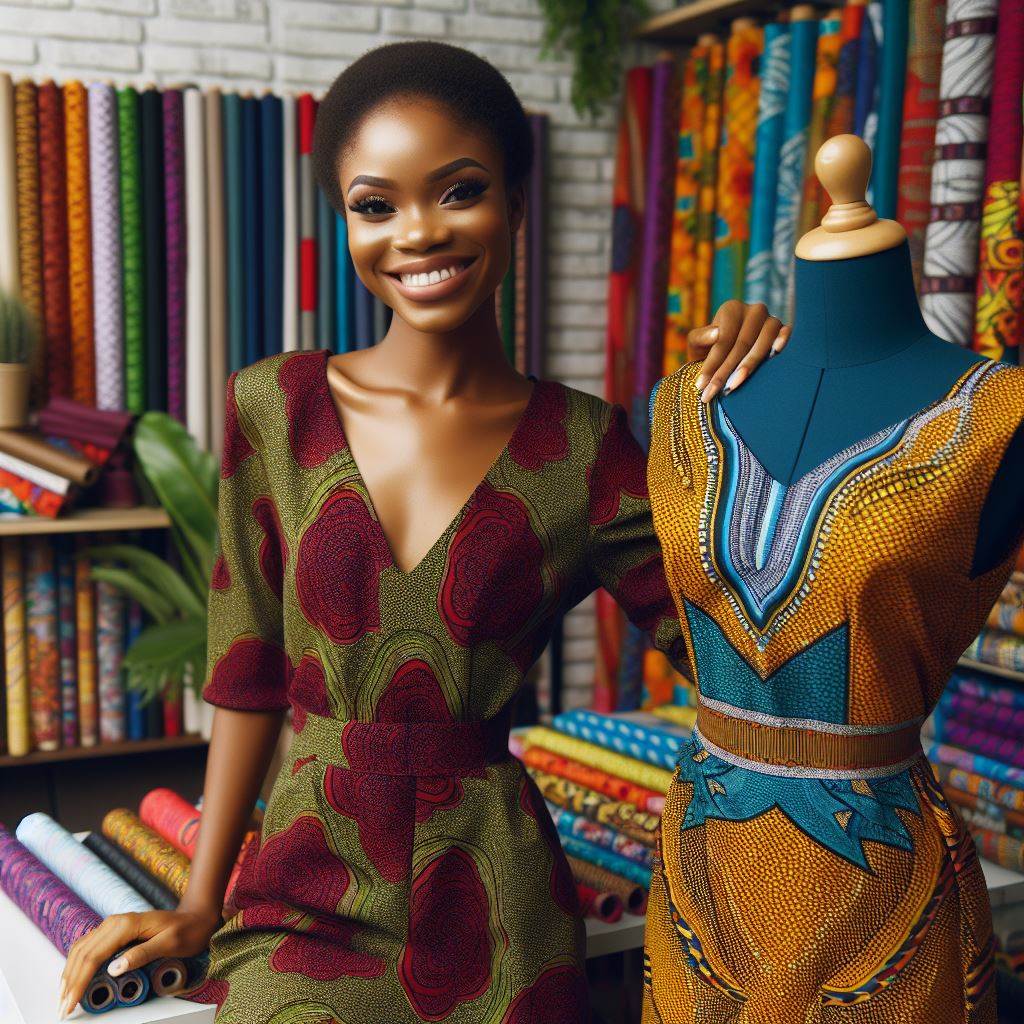
Gain More Insights: Overview of European Language Studies in Nigerian Schools
Collaboration and Partnerships
Collaborations between Nigerian designers and international brands have been instrumental in putting Nigerian fashion on the global map.
These partnerships bring together diverse perspectives, expertise, and resources to create innovative and unique fashion pieces.
Benefits of Cross-Cultural Collaborations in the Fashion Industry
- Exposure to new markets: Collaborating with international brands allows Nigerian designers to tap into new markets and reach a global audience.
- Knowledge exchange: Working with international brands provides Nigerian designers with an opportunity to learn new techniques, trends, and best practices in the industry.
- Brand visibility: Partnering with well-known international brands helps Nigerian designers increase their visibility and credibility in the fashion industry.
- Creative synergy: Cross-cultural collaborations often lead to the creation of unique and innovative fashion pieces that blend different cultural influences.
- Networking opportunities: Collaborating with international brands opens doors to new networking opportunities and connections within the fashion industry.
Case Studies of Successful Partnerships between Nigerian and Global Fashion Entities
One notable example of a successful collaboration between a Nigerian designer and an international brand is the partnership between Lisa Folawiyo and Temperley London.
Lisa Folawiyo, famed for innovative use of African prints, collaborated with British brand Temperley London, showcasing a fusion of styles.
Another successful partnership is the collaboration between Orange Culture and Samsung.
Orange Culture, a Nigerian gender-neutral fashion brand, collaborated with Samsung, resulting in a limited-edition collection blending fashion and technology.
Additionally, the collaboration between Deola Sagoe and Christian Louboutin garnered international attention.
Leading Nigerian fashion designer Deola Sagoe collaborated with luxury shoe brand Christian Louboutin, creating a collection with African-inspired patterns.
These successful partnerships demonstrate the power of collaboration in the fashion industry and how it can elevate Nigerian fashion onto the global stage.
Nigerian designers expand their reach, gain insights, and create groundbreaking fashion by joining forces with international brands.
Read: Internship Opportunities for Communication Arts Students
Cultural Appreciation vs. Appropriation
Analysis of Cultural Appropriation in the Fashion Industry
One of the key issues in the global fashion industry is cultural appropriation. This occurs when elements of a marginalized culture are adopted by dominant groups without proper acknowledgment or respect.
We must address this in Nigerian fashion, as its rich cultural heritage is often exploited without permission or credit.
Designers and brands must be mindful of the origins of their inspiration and avoid appropriating Nigerian traditional designs or motifs.
Importance of Acknowledging and Respecting Nigerian Cultural Heritage in Fashion
Nigerian culture is diverse and vibrant, with a long history of unique textile traditions, embroidery techniques, and vibrant colors.
It is essential to recognize and honor this heritage when incorporating Nigerian influences into fashion.
Designers show respect for Nigerian culture and contribute to its authenticity by acknowledging the origins of their designs.
Ways to Appreciate and Incorporate Nigerian Fashion Influences Without Appropriating Them
- Collaborate with Nigerian artisans and designers to co-create collections that celebrate the country’s cultural heritage.
- Research and understand the meanings behind Nigerian traditional patterns, symbols, and motifs before incorporating them into designs.
- Offer fair compensation and credit to Nigerian designers and artisans for their contributions to the fashion industry.
- Educate consumers about the significance of Nigerian cultural heritage and the importance of supporting authentic, ethically sourced fashion.
- Participate in cultural exchange programs and initiatives that promote mutual respect and understanding between different communities.
You Might Also Like: Importance of Preserving Indigenous Nigerian Languages
Learn More: Interview with Prominent Nigerian Art Educators
Explore Further: Successful Nigerian Film Producers You Should Know
Uncover the Details: Overview of European Language Studies in Nigerian Schools
Conclusion
In this blog post, we’ve explored how Nigerian fashion has made a significant impact on global trends.
Nigerian designers have brought unique styles, colors, and prints to the forefront of the fashion industry.
By infusing traditional Nigerian elements into modern designs, these fashion creatives have captivated audiences worldwide.
Their bold and innovative approach has redefined what it means to be fashionable.
The rise of Nigerian fashion on the global stage has not only reshaped the industry but also shed light on the rich cultural heritage of Nigeria.
It has opened doors for more diversity and inclusion in fashion.
As we conclude, it is evident that Nigerian fashion is a force to be reckoned with and its influence will continue to grow.
Embracing Nigerian fashion means embracing diversity, creativity, and authenticity in the fashion world.
It is important for us as consumers to support and promote Nigerian fashion designers on the international stage.
By doing so, we can help elevate their voices and ensure that their unique perspectives continue to inspire and shape global fashion trends.

